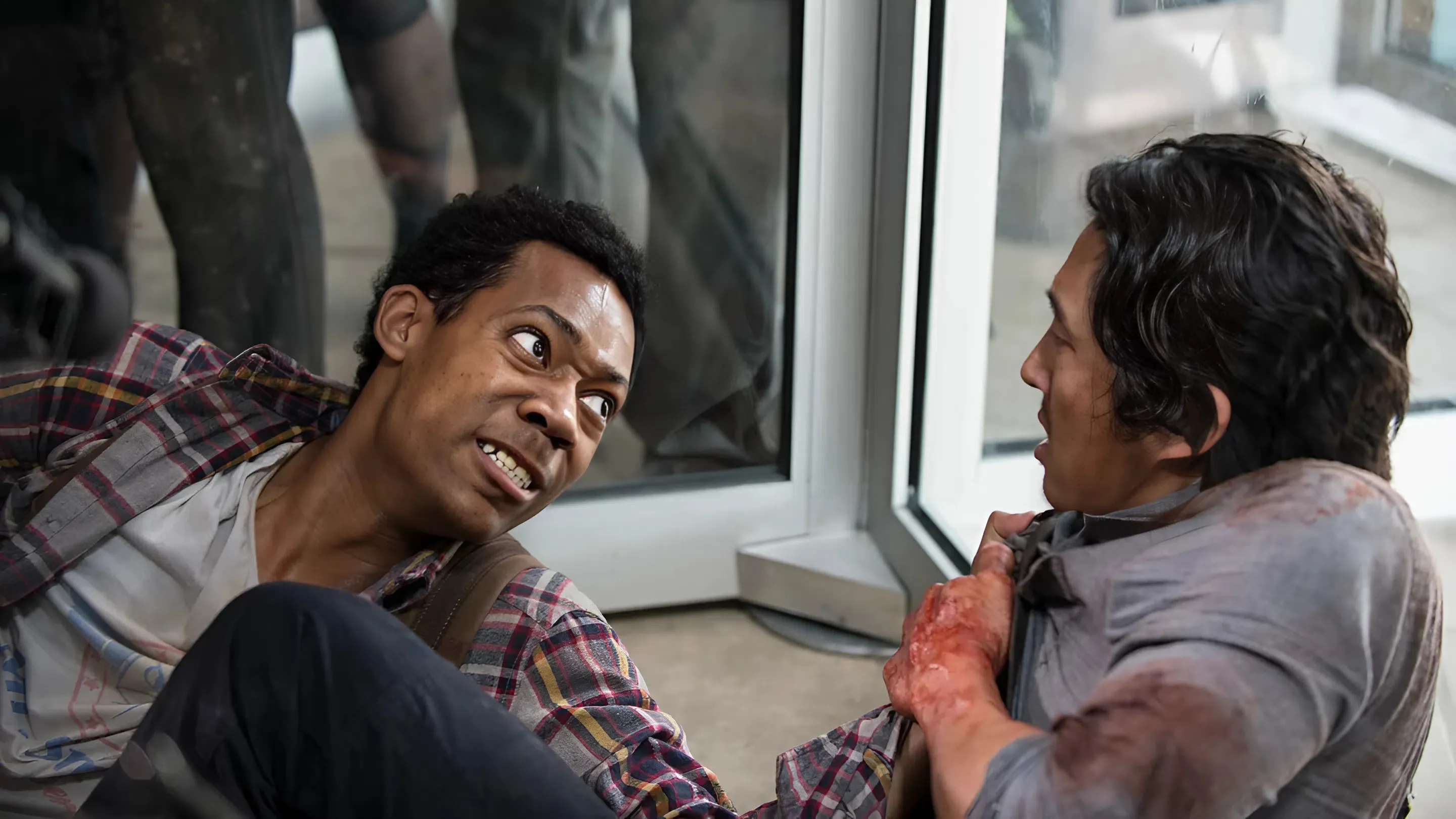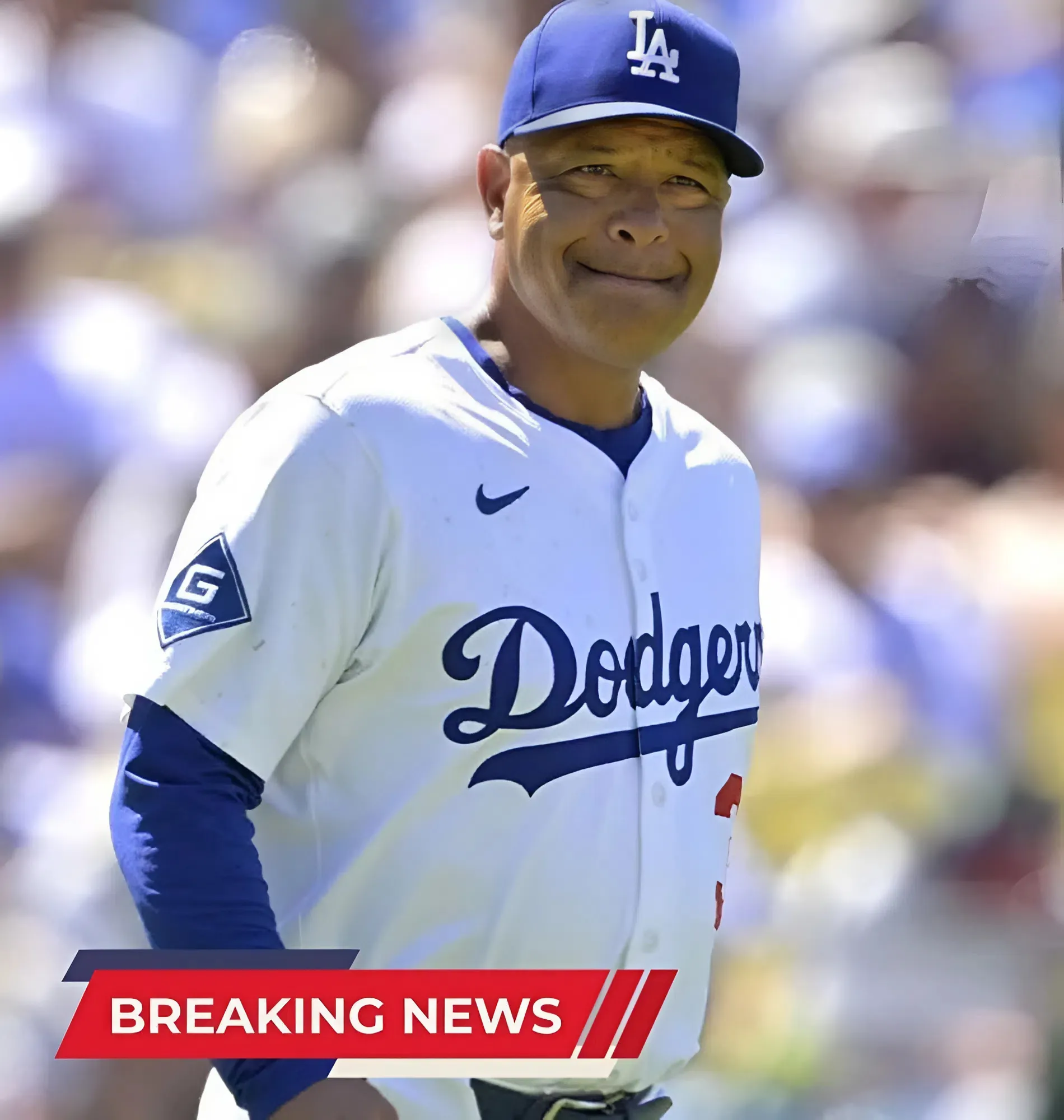Star Trek may have a long television, cinematic, and musical history, but composer Jeff Russo did something special and even managed a few firsts with this year’s Section 31 movie. The film, starring Michelle Yeoh as Philippa Georgiou, takes us into her backstory through the Mirror and Prime universe and some new audio frontiers. Over Zoom, Russo (who has a rock history of his own with Tonic) chatted about some of them, including bringing a unique guitar sound to the movie. Read on to find out more, including how the score paid homage to the past of Trek, including his own history with Star Trek: Discovery, and how the off-kilter sound was so appropriate to the story.

Ayla Ruby: I’m super excited to talk again and this time talk Star Trek. Thank you for making the time to be here.
Jeff Russo: Oh, no problem. Happy to.
Ayla Ruby: So I read that, and correct me if I’m wrong with Section 31, initially you wanted to do it, but the timing wasn’t going to work out because of other Star Trek projects, is that?
Jeff Russo: Oh, no. So that was something else. That was another Star Trek thing, and that was season three of Picard I was going, and then there was a conflict, a scheduling conflict that made it impossible to do. But Section 31, it was just a question of when it was going to happen and I was always interested in wanting to write more music for Philippa Georgiou. So when it became apparent that it was happening and they were shooting it, I was talking with Alex about it and Craig Sweeny, who was the writer and just expressed my interest in doing something different
Jeff Russo: And doing something a little left of center for Trek, still with a little bit of the Trek thing. But this character and the idea of Section 31, not really having been told the story hasn’t really been told. I mean, we saw a little bit of Section 31, obviously in DS nine, right? Talk
Ayla Ruby: And this is where my love of it came from.
Jeff Russo: But it really never became a central story point. It was just, oh yeah, there’s this thing and treating it the way we treated it in this film. It was really fun. It was just a lot of fun. Yeah.
Ayla Ruby: Awesome. And I guess kind of bridging into that, so diving into the music itself, the main title is kind of very different than the other main titles for the other Treks you’ve done. There’s this imposing feel and it feels really very appropriate for the movie.
Jeff Russo: I think from a character point of view, this telling this story is sort of different than we’ve done before. We’ve seen before. So I think the idea was how do we stay inside the world of Star Trek while still sort of tipping our hat to the way these characters are. They’re definitely offbeat and even Giorgio’s character, which is rooted in some pretty dark stuff and wanting to really pay attention to that. The way the backstory Philip Georgio’s backstory in the Mirror Universe is really interesting to me. And that sort of guided my sense of depth and darkness into that title.
Ayla Ruby: At one point too, in the title, there’s this off, and I’m going to describe this horribly, I don’t know what it is. There’s this off kilter slidey thing almost, which is so I don’t know what it is, but it’s so appropriate for Mirror Universe, for this.
Jeff Russo: I was tending to do stuff with layered synthesis and horns and brass. As you layer them together, they sort of give it this otherworldly type idea and feel. Whereas Trek would be sort of pure horn, this was a little more synthetic in nature.
Ayla Ruby: Well, the horns every once in a while popped up through the soundtrack and immediately, and I think it was working together, my lizard brain and my head went, wait, are we Star Fleet? Are we going to do Star Trek? Was that an intentional choice?
Jeff Russo: Definitely intentional. Definitely intentional to talk to the lizard brains, and we all have that and we’re all, so that’s the thing about thematic material and the sound that you associate with a certain thing. It’s like our lizard brains immediately get…
Ayla Ruby: Yeah, exactly.
Jeff Russo: And that’s what I’m so endeared to with working in this universe is that I have a button that I can push that’s like immediate bring the viewer to Trek world, and that’s that horn style, that sort of style of horn that you hear. And so you hear it in a lot of sci-fi, right? But the way we do it in Trek is very particular. I’m working on something right now for Trek, and I’m like, oh, okay, so horn right here, I can do that. And it works. It works well.
Ayla Ruby: Oh, that’s exciting. I was going to ask about this later, but I guess I’ll ask about it now. I think it kind of fits towards the, so the horns, again, towards the end of the movie when there’s this passageway that’s collapsing, was that the Star Trek, the original Alexander Courage theme.
Jeff Russo: Yeah, that kind of popped in there. I’ll use that sparingly because we don’t use it too much, but I use that and it’s very effective. It’s like you hear that, you’re like, yeah, Trek. Here we are. So there’s that button too that’s sort of like the in case of emergency break glass button, you know what I mean? And then all of a sudden Alexander Courage is playing and we’re immediately children again watching.
Ayla Ruby: Well, thematically too with the story, the way you use it in these moments, it just feels totally appropriate and it matches what’s happening to the characters and on screen that is a really big moment. She’s sacrificing well, her and Sahar are going to sacrifice themselves and be all the good that you can be.
Jeff Russo: I think it really does go to the overall emotional style of the show. Not this particular film, just the overall style of Trek in general. We are greater than the sum of our parts. We are one, we are, you know what I mean? And sort of working towards that idea that we can be better, right? So I’m always trying to somehow infuse that into music as well. And I think invoking the Courage theme as I like to call it, it really takes you there on a much shorter timeline.
Ayla Ruby:Yeah. I want to talk about a couple of the other songs. So we talked about the main title, but then there’s this shifting into the Baram and I was trying to think of if there’s been this cool guitar in Star Trek before, and I might be wrong, but I don’t think so.
Jeff Russo: I’m pretty sure that you’re right. There has not been, and I went back and forth with Alex on this in trying to, first version I’d gone too far. Second version, I hadn’t gone far enough. It’s, it was really, really threading a very fine needle trying to figure out how to do this music. We’re in this club, we come into the club and that’s what you’re hearing. So it was sort of a mix between, so what would be playing in the club and what is a good way to score this scene, which is fun and yet still emotional
Jeff Russo: And still sort of with the characters and be funny because it, it’s not tongue in cheek. We wanted to sort of play it for real. And then there was also this singer on stage singing.
I had to figure out how do I play music and then have it work with what we’re hearing and seeing the singer singing. And so is the music, what you’re hearing in the club is the music scoring it, which is sort of taking that 30,000 foot view look down on a scene. And it was really just trying to do all of the above, which is a heavy lift. But we eventually got there. And the idea again, in that first version I did, I had gone too far. The second version I did, I hadn’t gone far enough. I pulled it too far back and it was finding that middle ground of that piece of music was I think the thing that took the longest. I may have worked on the Baram piece for months.
Jeff Russo: Just kept working it and working it until we figured out where we were all sort of thinking like, oh yeah, this is now right in the lane.
Ayla Ruby: Now. What’s that process? Obviously you’ve worked with, we talked about before you working with Noah Hawley and how you guys have this working brain almost working with Kurtzman and all of those folks. How does that work for a Star Trek piece?
Jeff Russo: Well, Tunde (Olatunde Osunsanmi), who was the director, I would say he had a lot more of an important role in terms of interfacing with me on this than on other Trek projects. And that’s because typically when we’re doing episodic television, you’re dealing mainly with the writer, producer, Alex in that case.
Ayla Ruby: But movies are a different beast.
Jeff Russo: Films are a different beast and directors have, I think more of a creative guidance in what’s going on. So I was talking with him a lot in trying to find the space that was going to fit in. So I did a version of it and sent it to them and they were like, okay, we think this is not Trek enough. It’s too, what show is this? And then I was like, okay. And then I sort of pulled it back too far like, oh, okay, so now this is just Trek and now how do we find the halfway point between the two? And that’s what I think took me the longest trying to figure out, okay, does guitar work? How do I fit guitar in and not have it feel like it doesn’t belong there? So there was a lot of me just sitting in my studio here just playing the guitar, trying to come up with a riff that wasn’t too riffy, but also riffy enough that it was like, oh, that’s kind of a cool bouncy thing going on. So that’s really the entirety of the process. It’s like I do one send it, they send it back and say, okay, no, try it a little more like this
And then send it to them again. And that process just sort of keeps going and the field gets narrower and narrow narrower until everyone’s right in here and then we’re done.
Ayla Ruby: So as far instruments, we’ve talked about the horns, we talked about some of the stuff in the main title. So the next thing I wanted to talk about is I think Georgiou and Alok, the song that has a lot of really interesting sounds in it. And I feel like, again, that’s kind of an outlier in a good way with Trek. Well,
Jeff Russo: I think that Georgiou is an outlier in Trek. Right?
Ayla Ruby: Right? Of course.
Jeff Russo: So I had to look at it like that. I had to look at it like, okay, even with Georgiou’s introduction, not the original Georgiou who died in the second episode of Discovery. Was it the first episode, second episode of Discovery?
Ayla Ruby: I’ve lost track.
Jeff Russo: I think it was the second episode in any case, but not that Georgiou, the Mirror of Georgiou, right? Which the Georgiou that we all know
Ayla Ruby: The evil emperor who turns out to be…
Jeff Russo: Yeah. So she’s an outlier in Trek, and I really needed to treat the music that I was thinking about for her in that way. So opening up, as you can see, lots of synths trying to find some sounds that were not typical for Trek that still sort of work in that context that can be merged. All of my Trek scores are basically hybrid synth and orchestra, but they lean heavily on the orchestra. Whereas with this score, I was leaning a little more on the synths than I was the orchestra. I was using the synths in order to get there. I mean using the orchestra in order to get there, but using the synths as the lead up to it, where in other Trek scores I would typically use the synths as a supportive role. And here I use it more as a lead role in order to differentiate this sort of outlier character. And I think that’s where pieces like that you’re talking about definitely hail from. And I say that with all due respect to hailing frequencies. The other thing is I did also nod, tip my hat to the themes I had written in Discovery for the Mirror Universe.
And I did that because I have to sort of lend credence to our canon that we created. And I mean the Treks that have been created since 2017. And as I lean into that, I mine little bits and pieces from those scores in order to help me tell the musical story. Moving forward, I would say I would do the same thing in what I’m working on right now, because again, there is a canon, there is a timeline, and I do sort of follow myself, right? In this case, I’m following myself. I don’t have to think about what I was thinking about in Discovery when I did the first season of Discovery when we were taking place before.
Jeff Russo: The original series and even into season two. And it isn’t until the end of season two that we skip ahead a thousand years. I have to connect with the canon, the musical canon. So I’m doing that to myself, which is fun.
Ayla Ruby: Well, it’s triggering that lizard brain for people in the future who’ve watched Discovery and hear that and think, oh, this means that this is going to happen, like with the horns.
Jeff Russo: Yeah, exactly.
Ayla Ruby: I know we’re getting pretty close at time. Was there anything that was your favorite, and I’ve asked you this with other projects, was your favorite thing to kind of compose for this or to just kind of do with Section 31?
Jeff Russo: Well, the main title was fun to work on, and the opening was interesting because the opening was interesting, not really musically interesting, but interesting to think about.
Jeff Russo: From a narrative point of view, the way the opening was into the mid title, that whole idea was very interesting to me because we were telling this backstory of the Georgiou backstory, the girl, and that was something that was new to me. I didn’t know that until I read the script. I never had a backstory. So that was a lot of fun for me. The Baram was also a lot of fun because I got to do something that I don’t typically do, which is take my guitar out and play some guitar on a track score, which is very, very not typical.
Ayla Ruby: Awesome. Is there anything else you want people to know about Section 31 or anything you’re working on? I won’t ask about the Star Trek one. I don’t think I can.
Jeff Russo: I don’t know if you can or not. I can just say that I’m currently working on a Star Trek project right now. I won’t tell you what it is because I don’t know if I’m allowed to say what



